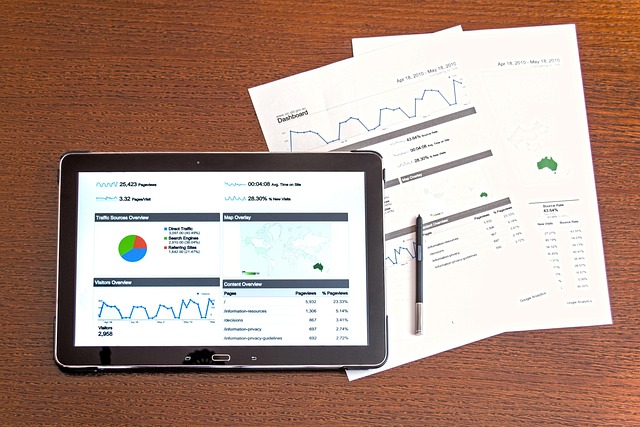# The Future of AI Technology: How It Will Transform Industries and Daily Life in the Coming Years
Artificial Intelligence (AI) is no longer a futuristic concept confined to science fiction. Instead, it is rapidly becoming an integral part of our daily lives and the backbone of many industries. As we advance further into the 21st century, the evolution of AI technology promises to reshape how we work, interact, and solve problems. This article explores the potential transformations across various sectors and the implications for our daily existence.
## Revolutionizing Industries
The impact of AI on industries is profound and multifaceted. In sectors such as healthcare, finance, manufacturing, and transportation, AI technologies are not just enhancing existing processes but are also creating entirely new paradigms. For instance, in healthcare, AI algorithms are being utilized to analyze vast datasets of medical records, enabling more accurate diagnoses and personalized treatment plans. Machine learning models can predict disease outbreaks and patient outcomes, which significantly improves the efficiency and effectiveness of healthcare delivery.
Moreover, the financial sector is experiencing a seismic shift due to AI. Algorithms are now employed for risk assessment, fraud detection, and algorithmic trading. These advancements allow financial institutions to process transactions at unprecedented speeds while minimizing human error. The predictive capabilities of AI enable businesses to anticipate market trends, thereby making more informed investment decisions. As a result, AI is not merely a tool but a strategic partner in driving innovation and competitiveness in finance.
Manufacturing is another sector undergoing a rapid transformation. With the advent of AI-powered robotics and automation, factories are becoming smarter and more efficient. Predictive maintenance powered by AI ensures that machinery is serviced before failures occur, thus minimizing downtime. Furthermore, AI systems can optimize supply chain logistics by analyzing real-time data, ensuring that products are delivered efficiently and cost-effectively. The integration of AI in manufacturing not only enhances productivity but also contributes to the development of sustainable practices by reducing waste and energy consumption.
## Enhancing Daily Life
Beyond industrial applications, AI technology is poised to revolutionize daily life in ways we are just beginning to comprehend. Smart home devices, powered by AI, are becoming ubiquitous. These systems learn from user behaviors and preferences, allowing for greater energy efficiency and enhanced convenience. Imagine a home that automatically adjusts the thermostat based on your daily routines or a refrigerator that alerts you when you are running low on groceries. Such innovations not only simplify tasks but also contribute to a more sustainable lifestyle.
Transportation is another area where AI is making significant strides. The development of autonomous vehicles promises to redefine how we commute. Self-driving cars equipped with AI can analyze traffic patterns, reduce accidents, and optimize routes to save time and fuel. This shift could lead to a decrease in traffic congestion and a reduction in carbon emissions, significantly impacting urban planning and the environment. Additionally, ride-sharing services powered by AI are already transforming urban mobility, making transportation more accessible and efficient for everyone.
Social interactions are also evolving due to AI. Virtual assistants, such as Siri and Alexa, are becoming more sophisticated, capable of understanding natural language and context. These technologies enable users to manage their schedules, control smart devices, and access information seamlessly. Furthermore, AI-driven social media algorithms curate content tailored to individual preferences, enhancing user engagement and connectivity. However, this personalization raises questions about privacy and the ethical use of data, highlighting the need for responsible AI development.
## Addressing Ethical and Societal Challenges
As AI technology continues to advance, it brings with it a host of ethical and societal challenges that must be addressed. One of the primary concerns is job displacement. While AI can enhance productivity and create new opportunities, it also poses a threat to traditional jobs, particularly those that involve routine tasks. The challenge lies in ensuring that workers are equipped with the necessary skills to thrive in an AI-driven economy. Reskilling and upskilling initiatives will be crucial in preparing the workforce for the changes ahead.
Another significant concern is the potential for bias in AI algorithms. These systems learn from historical data, which can inadvertently perpetuate existing biases and inequalities. For instance, if an AI model is trained on biased data, it may produce unfair outcomes in hiring, lending, or law enforcement. To mitigate these risks, it is essential to prioritize transparency and accountability in AI development. Establishing ethical guidelines and regulatory frameworks will be vital in ensuring that AI technologies are developed and deployed responsibly.
Finally, the issue of privacy cannot be overlooked. As AI systems collect and analyze vast amounts of data, concerns about surveillance and data security arise. Individuals must be informed about how their data is being used and have control over their personal information. Striking a balance between leveraging AI for societal benefit and protecting individual rights will be a crucial challenge for policymakers and technologists alike.
## Conclusion
In conclusion, the future of AI technology holds immense potential to transform industries and enhance daily life. From revolutionizing healthcare and finance to reshaping transportation and social interactions, the implications of AI are far-reaching. However, as we embrace these advancements, it is imperative to address the ethical and societal challenges that accompany them. By fostering a responsible approach to AI development, we can harness its power to create a more efficient, equitable, and sustainable future. The journey ahead is filled with possibilities, and with careful consideration, we can ensure that AI serves as a force for good in our society.











